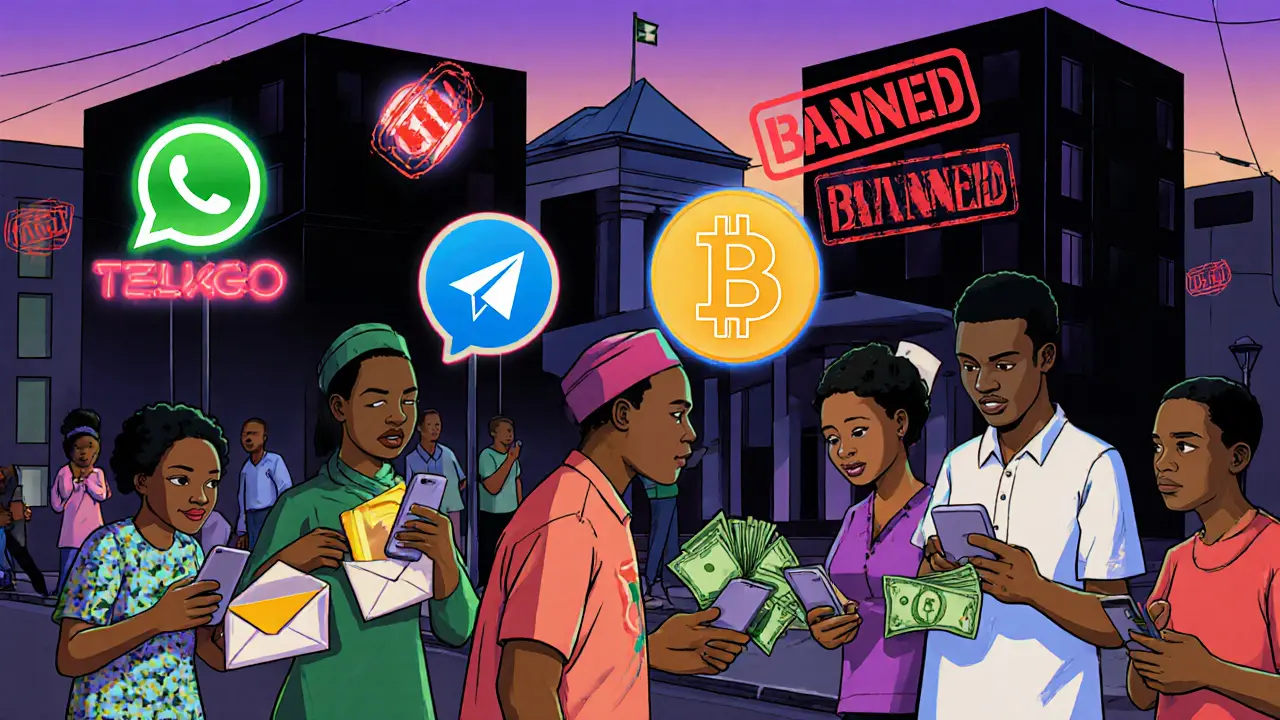
Despite a 2021 ban on banks handling crypto, Nigeria's underground crypto economy thrived through peer-to-peer trading, WhatsApp groups, and Telegram networks, becoming one of the world's largest and most innovative digital asset markets.
When you think of cryptocurrency, you might picture Bitcoin held in a wallet or Ethereum traded on Coinbase. But there’s another side to crypto—one that runs in the shadows, away from regulators and banks. This is the underground crypto economy, a network of decentralized, unregulated financial activity that moves value without oversight. Also known as dark crypto networks, it’s not just about crime—it’s about survival, resistance, and access for people cut off from the global financial system.
One of the clearest examples is Iran’s Bitcoin mining, a state-backed effort to turn excess electricity into hard currency amid U.S. sanctions. With banks frozen and payments blocked, Iran’s miners pump out Bitcoin to buy food, medicine, and fuel abroad. This isn’t speculation—it’s economic lifeline. Similarly, P2P crypto, peer-to-peer trading platforms that connect buyers and sellers directly, have become essential in countries like Thailand and Nigeria, where governments ban foreign exchanges. These aren’t fringe activities—they’re mainstream survival tools for millions.
Then there’s the darknet side: crypto used to buy goods on hidden marketplaces, pay for services in encrypted chats, or transfer funds without leaving a paper trail. Tools like Monero and privacy-focused wallets make tracking nearly impossible. But here’s the twist: the same tech that helps dissidents evade censorship also funds scams, ransomware, and illegal arms deals. The underground crypto economy doesn’t care about your morals—it only cares about access, speed, and anonymity. And as more countries crack down on banks and payment processors, this shadow system keeps growing.
What you’ll find in this collection aren’t abstract theories or speculative hype. These are real stories: how a Thai ban forced users onto decentralized exchanges, how Iran’s miners outsmarted sanctions, how fake airdrops prey on people desperate for free crypto, and how blockchain traceability can be used for both good and bad. This isn’t about whether the underground economy is right or wrong. It’s about understanding how it works—so you don’t get caught in it by accident.

Despite a 2021 ban on banks handling crypto, Nigeria's underground crypto economy thrived through peer-to-peer trading, WhatsApp groups, and Telegram networks, becoming one of the world's largest and most innovative digital asset markets.